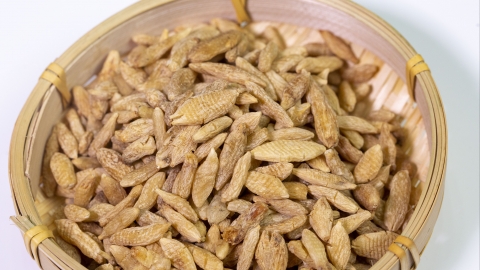Which three types of people should not consume Ophiopogon japonicus (McDoor)?
Generally speaking, there is no saying that "Ophiopogon japonicus (MJ) is unsuitable for three types of people." However, individuals with cold body constitution, wind-cold cough, excessive phlegm-dampness, spleen-stomach deficiency-cold with diarrhea, or those in the early stages of external contraction are not advised to consume MJ. Detailed explanations are as follows:
1. Individuals with Cold Body Constitution
People with cold body constitution often exhibit symptoms such as cold hands and feet, intolerance to cold, and susceptibility to diarrhea. Since MJ is slightly cold in nature, consumption by individuals in this group may exacerbate internal coldness, potentially worsening symptoms like abdominal pain and diarrhea, and intensifying cold intolerance. Therefore, individuals with cold body constitution should avoid consuming MJ.

2. Individuals with Wind-Cold Cough
Wind-cold cough is usually caused by exposure to cold, with symptoms such as clear, thin phlegm, intolerance to cold without sweating, and clear nasal discharge. Treatment should primarily focus on warming the body and dispersing cold. MJ is slightly cold in nature and has the effect of nourishing yin and relieving dryness. If consumed by individuals with wind-cold cough, it may trap cold within the body, prolonging cough symptoms and delaying recovery. Therefore, individuals with wind-cold cough should avoid consuming MJ.
3. Individuals with Excessive Internal Phlegm-Dampness
Individuals with excessive internal phlegm-dampness often exhibit symptoms such as thick, greasy tongue coating, bodily heaviness, viscous and excessive phlegm, and chest tightness. These individuals tend to accumulate more dampness and phlegm within the body. Due to MJ's relatively greasy nature, its consumption may worsen the accumulation of phlegm-dampness, intensifying the sensation of bodily heaviness and potentially increasing phlegm production, which hinders the elimination of phlegm-dampness. Therefore, individuals with excessive internal phlegm-dampness should avoid consuming MJ.
4. Individuals with Spleen-Stomach Deficiency-Cold and Diarrhea
Individuals with spleen-stomach deficiency-cold often have weakened digestive function and may experience symptoms such as loose stools, abdominal distension, poor appetite, and intolerance to cold. Since MJ is slightly cold in nature, it can further chill the spleen and stomach, potentially worsening the condition by increasing the frequency of diarrhea and aggravating abdominal distension, thus affecting the recovery of spleen-stomach function. Therefore, individuals with spleen-stomach deficiency-cold and diarrhea should avoid consuming MJ.
5. Individuals in the Early Stage of External Contraction
In the early stage of external pathogen invasion, the body needs to expel the pathogen through self-regulation or appropriate intervention. At this stage, the focus of treatment should be on resolving exterior symptoms and expelling the pathogen. Due to its greasy and nourishing properties, consuming MJ may trap the external pathogen inside the body, prolonging the illness and hindering the elimination of the pathogen. Therefore, individuals in the early stage of external contraction should avoid consuming MJ.
In addition, individuals currently taking certain specific medications should also consume MJ cautiously to avoid potential interactions. In daily life, if unsure whether one's body constitution is suitable for consuming MJ, it is recommended to consult a healthcare professional. If adverse reactions occur after accidental consumption, stop using MJ immediately, monitor symptoms, and seek medical attention if necessary.




